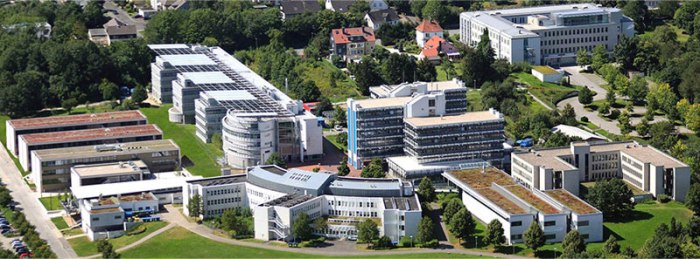
I participated in the second meeting of the Universities of the Future Network (UFN) held at FernUniversität in Hagen, Germany, 11-13 July 2017. The theme for the meeting was “The Digitalization of the Universities of the Future”. The meeting consisted of 6 key themes that were discussed and debated. This post will look at the first three themes, while a second post will look at the last three themes. The facilitators of each theme were asked to discuss the key trends and issues as well as provide suggestions for policy and strategy development.
Theme 1: Towards a Policy of Access: Digitalisation for All
The UN Sustainable Development Goal 4 on education focuses on expanding access to post-secondary and university education and lifelong learning, on the basis of inclusive and equitable practices. Thus, there is a need to balance equitable access on a national and global scale and the improvement of access, scale and the quality of teaching and learning in a digital age.
Looking back, access to print materials with the invention of the printing press meant the book provided a means of education that had mainly been done by oral lecture before. Now the internet and other digital technologies provide a similar means to change education provision. Some of the associated changes are open educational practices, reform of accreditation and quality assurance and the development of teacher professional competencies. While digital education can expand access, developing countries still battle with high illiteracy rates, low participation rates in higher education and massive capacity development needs.
Policies are needed to respond to national economic needs and social development goals. Digital education requires resources to be sustainable.
Policy Channels and Strategies for Change
- Institutional strategies to support systems and practices (widen participation to those who were traditionally excluded, access to technology and connectivity, support mechanisms for different students, relevant financial and human resources for digital education, recognition of prior learning)
- Open education policies for the transformation of teaching and learning (vision of open education to inform and support open educational practices)
- Redefining the changing roles of institutions (competencies for digital education, sustainable business models, industry partnerships, accreditation and quality assurance)
- Creation and optimisation of open educational content and skills (development and production of OER, development of lifelong learning skills and digital literacy skills)
Theme 2: Teaching and Learning in a Digital Age: Challenges and Opportunities
The use of technology in teaching and learning varies depending on the methods of education provision: Fully online, Blended or Face-to-face. In reality, however, this distinction is blurred as most education provision is blended. Another development linked to digital teaching and learning is the open education movement. This includes Open Educational Resources (OER) such as open textbooks and MOOCs. There are several challenges and opportunities for digital teaching and learning:
Challenges for digital teaching and learning:
- Technical infrastructure development and maintenance
- Costs in the development and use of digital processes and procedures
- Digital literacy skills of teachers and students
- Lack of incentives (rewards and recognition) for innovative teaching methods
- Changing roles of educators and support staff and other stakeholders
Opportunities for digital teaching and learning:
- Reaching new target groups
- Promotion of student flexibility and mobility
- Improvements in teaching and learning quality
- Potential cost-savings for institutions and students
- Increasing collaboration between institutions
- Facilitate the co-creation of knowledge
Policy Channels and Strategies for Change
- Strategy and change processes
- Prioritisation of digital literacy skills
- Expanding infrastructures for digital teaching and learning practices
- Funding for developing and distributing digital learning resources
- Frameworks for digital teaching (teaching load, data protection and copyright issues)
- Investing in support structures
- Collaborative projects
Theme 3: Redefining Knowledge in a Digital Age: Internet and Social Media
The internet and social media have had a massive effect on knowledge creation and dissemination in the digital age. Key drivers in the changes of knowledge production and recognition are:
- Decentralisation and disintermediation: The internet has diversified means of knowledge production and information dissemination and universities are no longer regarded as the main providers of expertise.
- Massiveness and growing demand: Universities are facing unprecedented demand for higher education. Learning is also offered in flexible ways.
- New forms of knowledge production: knowledge production is more distributed and collaborative. There is also unprecedented growth in information online. The rise of artificial intelligence systems will open a new frontier for knowledge production and application.
- New forms of knowledge recognition: In addition to traditional forms of recognition (diplomas and certificates), new forms of recognition include digital badges and portfolios. Alternative forms of assessing the impacts of academic research have also emerged.
Policy Channels and Strategies for Change
- Discovery: Building original and significant research, generating new and relevant knowledge (strategies: open data policies, building Artificial Intelligence infrastructure, digital literacy policies and data management plans)
- Integration: Build connections across disciplines, integrate new discoveries and promote use of knowledge across disciplines and communities (strategies: connection between disciplines, promote digital scholarship, technology integration models, implement new computational approaches to explore large data sets)
- Application: Knowledge needs to offer different forms of helping society and professions to address problems and the dissemination of results to different stakeholders (strategies: build new tools to assess and validate knowledge in formal and informal settings, explore mixed reality technologies, such as augmented or virtual reality, development of Open Education Resources (OERs))
- Teaching and learning: optimising connections between learning and practices and enriching pedagogical approaches through research and dissemination of good practices. (strategies: developing less formal learning cultures and community support, development of alternative credentialing mechanisms and university ranking systems, design of new assessment systems)
